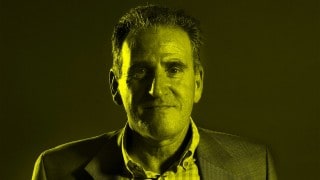October 10 is the 50th anniversary of the publication of Ayn Rand’s classic novel Atlas Shrugged, so in the coming week we can expect to see a flurry of articles about the novel—many of which will, unfortunately, offer highly inaccurate descriptions of its meaning and significance.
That’s a shame, because Atlas Shrugged is a novel that everyone ought to discover and grapple with, because it succeeds at something too few artists and intellectuals have had the courage to do.
The purpose of art and philosophy is to show us truths about human nature, about the nature of the world and our place in it. Philosophy names these truths explicitly, in literal terms; literature dramatizes these truths in concrete terms, revealing its insights through the actions and statements of the characters created by the novelist. A philosophical novel, like Atlas Shrugged, is supposed to do both of these things.
But too often both the philosophers and the artists have simply repeated or project their own prejudices and pre-conceived notions.
The most important event of the past two centuries, with which artists and intellectuals ought to have come to grips, is the rise of capitalism and the Industrial Revolution—a social revolution that has radically transformed human life for the better. Free markets and industrialization have produced a previously unimagined wealth, which is enjoyed not only by captains of industry but by the common man, who is able to afford luxuries—large homes, automobiles, air travel, everything down to his caffe latte at the corner book store—on a scale that could not even have been conceived in earlier centuries. Capitalism has also afforded the individual a degree of personal independence and unlimited opportunity that has fully liberated men from the stultifying tyranny of previous aristocratic and feudal systems.
No one could have conceived of the achievements of capitalism and the Industrial Revolution before they happened—and these new events required a radical re-evaluation of conventional ideas. Yet the intellectuals failed to perform such a re-evaluation.
For example, in 1816, at the dawn of the Industrial Revolution, a group of Britain’s best young literary minds—including Lord Byron, Percy Shelley, and Mary Wollstonecraft Godwin (who later became Mary Shelley)—gathered together to explore their new school of literature, which they called “Gothic” because it took its inspiration from the mysticism of the Middle Ages. In that spirit, they challenged each other to write the best ghost story, and Mary Shelley wrote Frankenstein—a story which portrays the quest for scientific and technological knowledge as a kind of dangerous madness.
Just as capitalism was propelling us forward into a technological future that would, among other advantages, double the average human lifespan, the intellectuals were looking backward to the Middle Ages and predicting that all of this new science and technology would bring disaster. (They’re still doing it, except that now they conjure up the bogeyman of global warming in the place of Frankenstein’s monster.)
A few decades later, a German intellectual named Karl Marx gave one of the most influential accounts of the new capitalist system—and he got everything wrong. An Industrial Revolution driven by scientific and technological advances springing from the minds of a few extraordinary individuals, he would describe as the anonymous, collective product of brute physical labor; an economic system of liberty, he would describe as a system of oppression; a system built on the right to property he would describe as a system based of expropriation—and then he would propose actual oppression and expropriation as the solution.
This has been the pattern of the artists and intellectuals in dealing with the most significant phenomenon of our age. While the world was transformed around them, they refused to grasp the real meaning of these events, choosing to ignore or denigrate the forces that were rapidly improving human life.
http://www.realclearpolitics.com/articles/2007/10/the_historic_significance_of_a.html









